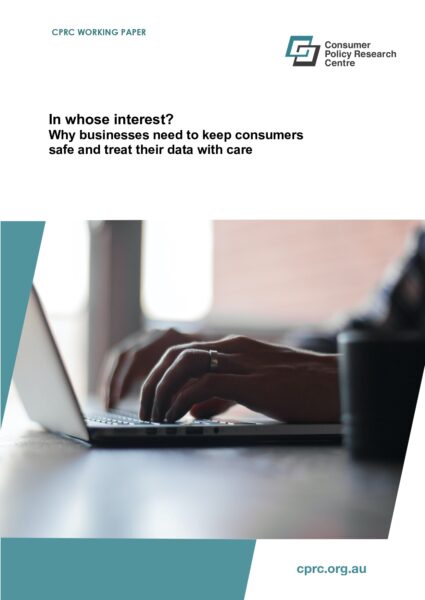May 29, 2019
Led by CPRC Senior Research and Policy Officer, Brigid Richmond, the report presents the personal data extracted from consumers each day, often without their full knowledge, understanding, or consent.
Led by CPRC Senior Research and Policy Officer, Brigid Richmond, the report presents the personal data extracted from consumers each day, often without their full knowledge, understanding, or consent.
A Day in the Life of Data highlights how technology enables online and offline tracking of consumers with greater precision, volume and velocity than ever before. From this data companies can infer everything from personality, health status, and political affiliations, through to even our mood.
Potential harms include manipulation, discrimination and exclusion, personal security risks, and consumer mistrust, along with unique risks for children who have now grown up in a connected world.
The report outlines several policy responses and business practices critical to ensuring that innovation and markets operate in line with community values and expectations.
Trackers are common offline and online. Even non-users of major services such as Google and Facebook have 1 been found to be tracked by those companies.
Consumers don’t understand what they are handing over or the value of that data. Policy makers will find it difficult to design effective remedies unless the supply chain governing data collection, sharing and use is 2 more transparent.
by privacy policies and have limited understanding or control over their 3 personal data.
The more significant harms – and the harms that policy makers and regulators should be discussing – are the growing risks of consumer manipulation, discrimination and exclusion based on automated decision-making 4 using online and offline profile data.
Key issues for policy makers include: requiring transparency, enabling consumer comprehension and control, implementing accountability measures (for data collection and for automated decision-making), establishing minimum protection standards and preventing exploitation.

October 31, 2023
Faulty cars are far too common and disrupt too many lives. This report delves deep into the repercussions of faulty cars on individuals' lives, examines the legal pathways available for those seeking remedies and explores the experience of First Nations people.

March 16, 2023
Australia’s privacy laws rely on notification and consent as the primary means of protecting consumers. The onus is on consumers to navigate complex privacy protections in a continuously complex digital economy. It is time to consider reforms that hold businesses accountable for how they collect, share and use consumer data. It is time to give regulators the power to pause and assess data practices that are causing or likely to cause consumer harm.